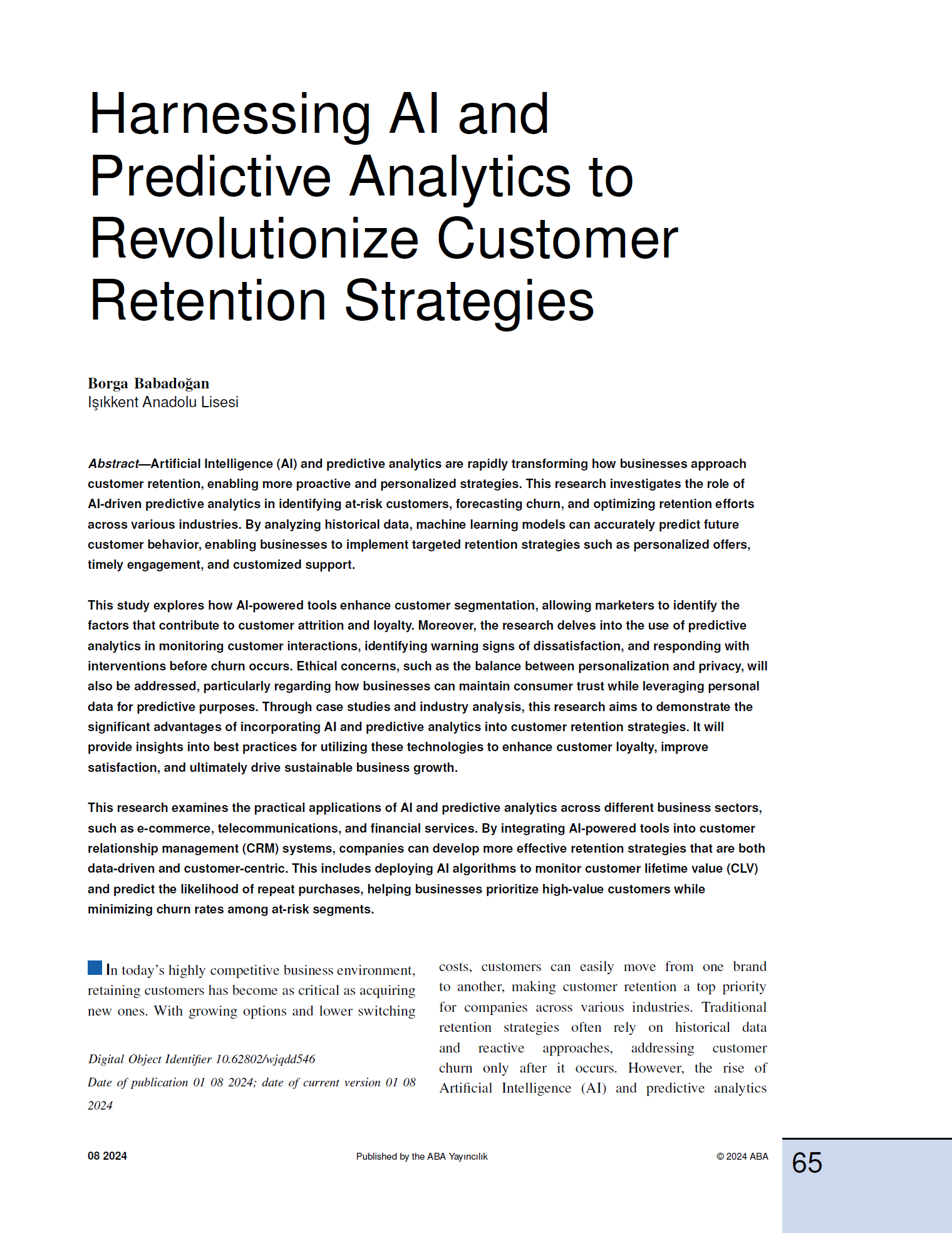Harnessing AI and Predictive Analytics to Revolutionize Customer Retention Strategies
DOI:
https://doi.org/10.62802/k2a4gf39Keywords:
Artificial Intelligence, Customer Relationship Management, Privacy and Personalization Balance, Ethical AI in Business, Data-Driven Insights, Machine Learning Models, Data Privacy in AI, Customer RetentionAbstract
Artificial Intelligence (AI) and predictive analytics are rapidly transforming how businesses approach customer retention, enabling more proactive and personalized strategies. This research investigates the role of AI-driven predictive analytics in identifying at-risk customers, forecasting churn, and optimizing retention efforts across various industries. By analyzing historical data, machine learning models can accurately predict future customer behavior, enabling businesses to implement targeted retention strategies such as personalized offers, timely engagement, and customized support.
This study explores how AI-powered tools enhance customer segmentation, allowing marketers to identify the factors that contribute to customer attrition and loyalty. Moreover, the research delves into the use of predictive analytics in monitoring customer interactions, identifying warning signs of dissatisfaction, and responding with interventions before churn occurs. Ethical concerns, such as the balance between personalization and privacy, will also be addressed, particularly regarding how businesses can maintain consumer trust while leveraging personal data for predictive purposes. Through case studies and industry analysis, this research aims to demonstrate the significant advantages of incorporating AI and predictive analytics into customer retention strategies. It will provide insights into best practices for utilizing these technologies to enhance customer loyalty, improve satisfaction, and ultimately drive sustainable business growth.
this research examines the practical applications of AI and predictive analytics across different business sectors, such as e-commerce, telecommunications, and financial services. By integrating AI-powered tools into customer relationship management (CRM) systems, companies can develop more effective retention strategies that are both data-driven and customer-centric. This includes deploying AI algorithms to monitor customer lifetime value (CLV) and predict the likelihood of repeat purchases, helping businesses prioritize high-value customers while minimizing churn rates among at-risk segments.
References
Wang, S. (2023). Credit card attrition: an overview of machine learning and deep learning techniques. Informatics Economics Management, 2(4), 0134-0144. https://doi.org/10.47813/2782-5280-2023-2-4-0134-0144
Noranee, S. and Othman, A. (2023). Understanding consumer sentiments: exploring the role of artificial intelligence in marketing. Jmm17 Jurnal Ilmu Ekonomi Dan Manajemen, 10(1), 15-23. https://doi.org/10.30996/jmm17.v10i1.8690
MASIH, D. (2023). Enhancing employee efficiency and performance in industry 5.0 organizations through artificial intelligence integration. EEL, 13(4), 300-315. https://doi.org/10.52783/eel.v13i4.589









